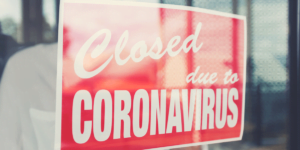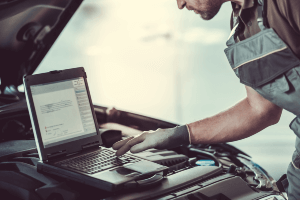Even if you’re just in a fender-bender, it’s easy to become emotional, disoriented, and excited, and lose your focus. That’s why it’s important to have a plan ahead of time, in case you’re in an accident, you’ll know what steps to take, who to call, and what to ask. Pfeifer, Morgan & Stesiak’s South Bend auto accident attorneys would even recommend writing out a checklist (or just print this one), and keeping it in your car, in the same envelope as your registration and proof of insurance.
Here are the steps to take after an accident:
1. Call the authorities. If someone is hurt, be sure to tell the dispatcher that you’ll need medical first-responders. You do not need to tell the whole story on the phone, but 911 calls are recorded, and it could be helpful if you establish that it was not your fault (i.e.”I was in I-69, and someone ran into me from behind”). Wait patiently for the police and ambulance (if necessary) to arrive. Don’t move your car, or allow the other driver to do so, as it could obscure who was at fault. (However, If you have to move cars to ensure your safety and that of other drivers, do so.)
2. Call your insurance company. Keep your health insurance card in you wallet, in case of emergency. Your car insurance company’s number is on the back of your proof of insurance, which you should keep in your car anyway.
3. Call your family, friends, or coworkers while waiting for first responders. Limit yourself to two phone calls, so that you don’t lose your focus. If your accident was on your way to work, you’ll need to let your boss know what has happened. If you need to be taken to a hospital, call a friend or family member to meet you there. Talking to a friend will also help you to calm down after the adrenaline rush of an accident. Keep a list of people to contact in an emergency in your wallet or purse, as well as on your phone, because it could be helpful to first responders if you’re not able to make the call yourself.
4. Remember the details. Look at what has happened. Examine your car for damage. Even if nothing looks damaged, exchange phone numbers with the other driver, and have your mechanic look at your car as soon as possible. While you’re at it…
5. Take pictures. You don’t have to get a camera that you specifically keep in your car in case of an accident; nearly everyone now carries around a camera on their cell phone. Be far enough away that each picture has context, and take the pictures with as high a resolution as possible.
6. Call a personal injury attorney. You don’t have to call while you’re in the middle of being treated for your injuries, and EMTs are asking you questions, and it’s more important to speak to your family members to let them know that you’re alright.
But when the immediate concerns are taken care of, it’s important to call a personal injury attorney who operates in Indiana, to arrange a meeting with them to discuss your accident and its potential legal ramifications.












